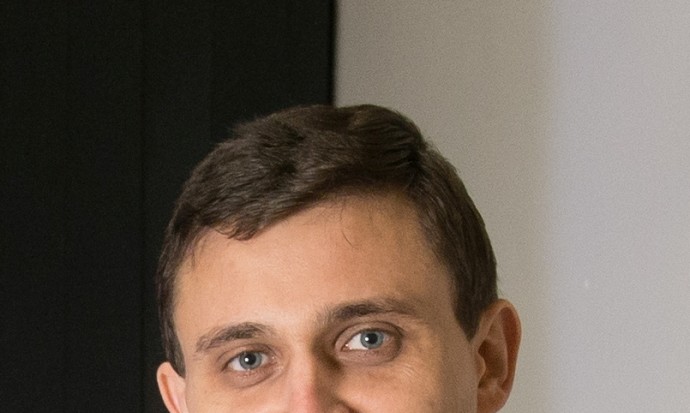Professor Tjaart Krüger has been doing research at the University of Pretoria (UP) for nine years. Prof Krüger has established and leads the biophysics research team which is based in the Department of Physics. He completed his undergraduate studies at North-West University (then Potchefstroom University).
Biophysics is a field of research that uses the rigorous laws and principles of physics to describe the complexity of biological systems. Prof Krüger says he became fascinated with biophysics a few years before embarking on his PhD, but because there was limited activity in this field in South Africa, he looked for PhD opportunities abroad, with hope of returning to South Africa to help establish the field in the country.
Prof Krüger says going to Amsterdam to do his PhD was a life-changing experience. It was not only a career shift to switch from an MSc in Space Physics to a PhD in Biophysics, but he found the vibrant scientific environment stimulating.
During his postdoctoral period, UP’s Department of Physics showed an interest in the field and offered Prof Krüger a position. He accepted the offer because, among other things, the position promised a reduced teaching load that would enable him to focus on establishing the new research field. UP also had a relatively large number of physics students compared to many other South African universities.
“I considered human capital development to be an important element in establishing this new research field, as this would have been difficult without a growing critical mass,” he says, adding that despite a lot having happened over the past nine years, support at various levels is disappointing.
In terms of how his field of research contributes to the betterment of the world, Prof Krüger says: “Without the advances in physics over the past two centuries, the world would have looked entirely different, because most technological advances are based on new discoveries in physics. It still applies to the world we live in today: the complex problems of today demand multidisciplinary efforts, and because physics is a fundamental, enabling science, it plays a critical role in addressing these issues.”
Biophysics is multidisciplinary by definition, and aims to solve complex problems in biology and medicine, he adds.
“Over the past few decades, biophysics has not only contributed to great advances in solving important and fundamental questions in biology, but has also shown to be a notable source of innovation. The following extract from the educational website of the international Biophysical Society states it well: ‘Biophysics is a wellspring of innovation for [any] high-tech economy... Society is facing physical and biological problems of global proportions. How will we continue to get sufficient energy; how can we feed the world’s population; how do we remediate global warming; how do we preserve biological diversity; how do we secure clean and plentiful water? These are crises that require scientific insight and innovation. Biophysics provides that insight and technologies for meeting these challenges.’
“Biophysics underpins very large sections of the global bio-economy; therefore, a strong, diverse biophysics research and commercial sector is vital for the success of the African economy,” Prof Krüger says.
Interestingly, he explains, many of the key-enabling technologies that the European Union is seeking to realise find examples in nature. In other words: “humankind is desperately seeking technological solutions that already exist in nature – biophysics is key to identifying and implementing these design principles in nature”.
Prof Krüger is currently conducting research into the primary processes of photosynthesis.
“The light-harvesting protein complexes of photosynthetic organisms are amazing molecular machines,” he explains. “They use quantum mechanics to optimise their functions, a property that has captivated physicists for many decades; they feature as delicate, smart nano-switches to maintain a fine balance between their light-harvesting and photoprotective functions, and exhibit an amazing variety. They offer various technological applications such as nano-sensing, molecular switches and light-activated molecular processes. These systems are also a great source of inspiration for finding green, sustainable energy solutions. Also, much of our food security depends on photosynthesis. Certain types of cyanobacteria, for instance, are viable sources of future food.”
He says he has recruited a few new postgraduate students over the past 18 months and has embarked on several new research projects.
“The focus of most of these research projects is still in line with the research I am doing, but there are many new elements and a broadening of the research scope. One good example is our development of new research methods. Over the past few years, my research group has built the first single molecule spectroscopy experimental facility in Africa, and we are continuing to broaden its scope of capabilities, making it a unique piece of equipment.”
A specific highlight is the success of his project on time reversibility with Prof Emil Roduner; the project involves the notion of “molecular memory”. The outcome of their research was published in the journal Physics Reports earlier this year and Prof Krüger contributed an article about the research to The Conversation Africa. In May 2022, the two UP academics participated in a Cassyni seminar based on the content of their research.
As far as interdepartmental and interdisciplinary research goes, Prof Krüger embarked on a new project with one of his postdoctoral fellows and Prof Don Cowan, Director of UP’s Centre for Microbial Ecology and Genomics. They investigated the photosynthetic properties of hypoliths, organisms that live (and thrive) underneath stones in the Namib Desert. Their research findings drew the attention of Physics Today, the flagship publication of the American Institute of Physics. It is the most influential and closely followed physics magazine in the world.
In 2021, Prof Krüger joined the editorial board of The Journal of Physical Chemistry Letters; he was also invited to deliver keynote lectures at international conferences and to review grant applications for international grant agencies.
He singles out a particularly inspiring incident at a conference in Berlin in 2014. He was talking to Prof WE Moerner of Stanford University, with whom he was collaborating at the time, and they were joined by Stefan Hell, a director at the Max Planck Institute for Biophysical Chemistry in Göttingen, Germany. “Little did I know that a few weeks later, both would receive the Nobel Prize in Chemistry,” Prof Krüger says. “They are great scientists and still inspire me.”
Prof Krüger says his grandfather is another great role model. “He was one of the key people in my life who showed me the beauty of nature through the eyes of a physicist. Even today, at 95, he is doing research in physics and is still enthusiastic and supportive of my research.”
Prof Krüger hopes to witness the steady growth of biophysics research and education in South Africa to a level that would enable the establishment of strong biophysics institutes in the country in order to address important biophysics research questions and to serve as springboards for spin-off companies.
Prof Krüger’s advice to school learners or undergraduates who are interested in his field is to nurture an inquisitive mind and feed their curiosity with excellent resources like the many stimulating educational websites, podcasts and video channels that are at our disposal. “Find people who are passionate about their research and learn from them,” he adds. “Learn to see every part of the world through the eyes of a physicist. See mathematics as a useful tool for physicists to describe the world. When your circumstances are challenging, do not blame them, your history or other people – rise above that and embrace every opportunity that comes your way.”
He also encourages aspiring scientists to adopt the following qualities: “Perseverance (no matter the obstacles you encounter); creativity (which requires knowing cutting-edge problems, reading widely and setting aside sufficient time for reflective thinking); good interpersonal skills (because it is unlikely that you will succeed in doing impactful research on your own); good time management skills (to juggle all the responsibilities you have to face each day); and a healthy work-life balance (no matter how stimulating or demanding your work is).”
His free time is devoted to his wife, three daughters and two sons, who he enjoys spending quality time with. He also loves music – he plays three musical instruments and composes his own music.

 Talking Point
Talking Point
Get Social With Us
Download the UP Mobile App